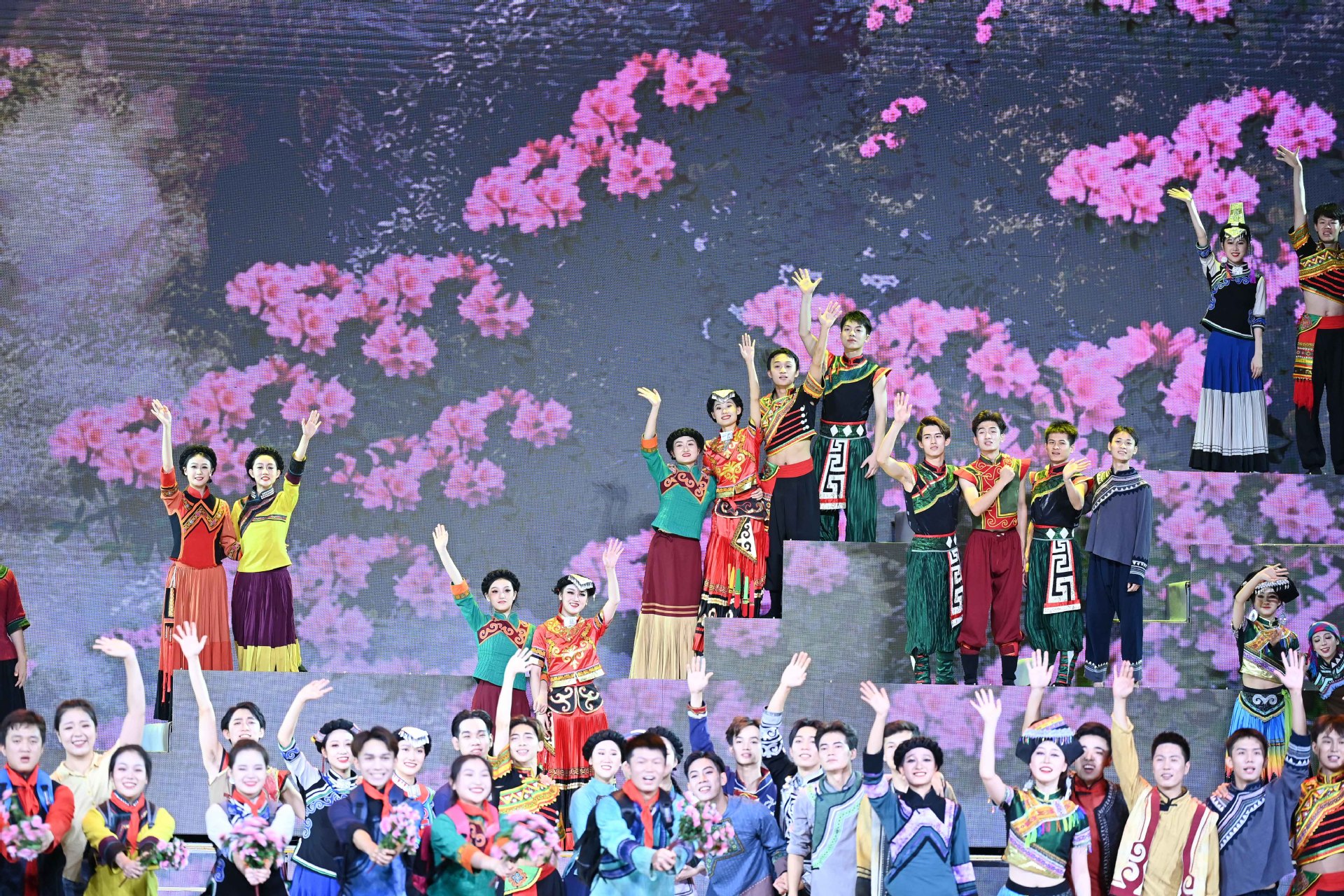Leaders watch ethnic minority cultural gala
Updated: 2021-09-02 By CHEN NAN (China Daily)  Print
Print 



Performers greet the audience at the gala performance of the sixth ethnic minority art festival in Beijing on Tuesday evening. The gala featured songs and dances showcasing the distinctive cultures of different ethnic groups. LI XIANG/XINHUA
President Xi Jinping and other senior leaders watched the opening gala of the sixth ethnic minority art festival along with an audience of more than 3,000 people at the Great Hall of the People in Beijing on Tuesday night.
The festival, which runs until Sept 24, showcases the distinctive cultures of China's different ethnic groups, with performances of folk music and dances, 42 of which will also be shown on China Central Television and streamed online.
According to the festival's organizer, the performances will enable audiences to better understand people from the country's many ethnic groups, and especially their history and culture.
"It's a significant year since 2021 marks the 100th birthday of the Communist Party of China. The sixth ethnic minority art festival will showcase the diversity of China's ethnic groups," Guo Weiping, deputy director of the National Ethnic Affairs Commission, said in a speech in Beijing on Sept 4 last year during the first preparatory meeting for the festival.
One of the shows to be streamed online during the festival is the opera Chen Ai Luo Ding, literally translated as The Dust Settles, performed by Chongqing Opera House and Chongqing Symphony Orchestra.
Based on Tibetan author Alai's epic novel with the same title, the opera premiered in 2018 and follows the story of the once-powerful Tibetan chieftains. Actors and actresses in traditional Tibetan costumes are accompanied by Tibetan folk music onstage. The opera will be streamed online from Sept 8 to 13.
"This opera has received warm feedback from the audiences with its unique cultural background of the Tibetan people. While this year marks the 70th anniversary of the peaceful liberation of Tibet, it's quite meaningful to bring this opera to Beijing for audiences to enjoy authentic Tibetan culture," Liu Guangyu, president of Chongqing Opera House, was quoted as saying by the Chongqing Morning Post.
"China's ethnic groups are known for their vibrant music and dances, which have been passed down for generations. This kind of traditions inspire contemporary artists," said Zhao Ming, director of the Chinese dance drama, Heroic Little Sisters of Grassland, another theatrical production, which is being streamed online from Thursday to Monday.
Produced by Inner Mongolia Arts University, a major art school located in Hohhot, Inner Mongolia autonomous region, the dance drama premiered in 2017 and is based on the true story of two Mongolian girls, Long Mei and Yu Rong, who, in the winter of 1964, struggled against a snowstorm to protect a flock of sheep. They saved the sheep and their story has been passed down and told through various art forms, such as a movie and a musical.
Zhao traveled across Inner Mongolia to watch performances by traditional dancers and musicians while preparing for the dance drama. All the performers of the dance drama are students of the Inner Mongolia Arts University, who perform Mongolian folk music and dances in the show.
"Those songs and dance moves conjure up images of nature, which are great treasures of the Mongolian ethnic group. We hope the audiences can see the beauty of ethnic arts," Zhao said.
According to the National Ethnic Affairs Commission, the co-organizer of the festival, it was launched in 1980 in Beijing and the fifth festival took place in 2016.








